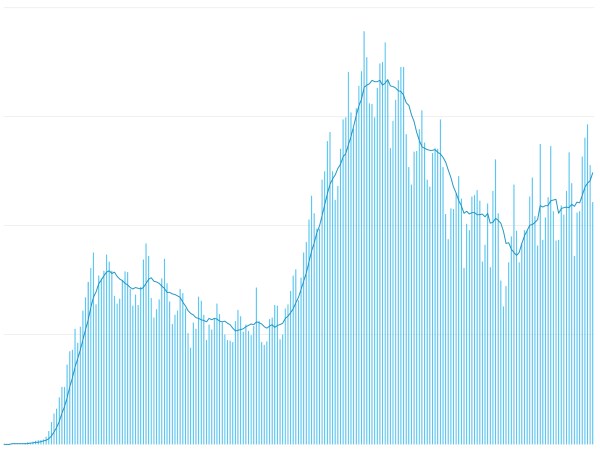

The COVID-19 news cycle continues to turn, and with the holiday and flu seasons on the horizon it’s only getting more complicated. While some news recently has been promising, like booster shots and vaccinations for kids, this COVID-19 pandemic continues to cause concern as unvaccinated individuals are left unprotected and side effects of the pandemic continue to unveil themselves. Here are some of the key headlines from this week that you may have missed.
Receiving a Pfizer or Moderna booster shot might be better than a Johnson & Johnson booster shot
A new “mix and match” study sponsored by the National Institutes of Health showed that a second dose of either Pfizer or Moderna showed a stronger immune system response for those who had the J&J shot first than a J&J second dose. The study only included around 500 people, a much smaller size than initial vaccine trials, but in all possible combinations of the vaccines, those who got J&J for both the initial shot and the booster had the lowest immune response. Those who got the J&J first would be better off getting either Pfizer or Moderna as a booster—the combination boosts the J&J dose to be on par with the two-shot mRNA vaccines.
White House pushes for more action on global vaccination
Under pressure from the public to do more for vaccination worldwide, the Biden administration is pushing Moderna to provide more vaccination doses for global populations. Pfizer has already coordinated with the US government to donate 500 million doses worldwide, and Johnson & Johnson may also be asked to offer doses in the future if their production capacity increases. While the administration has not taken any direct action yet (they have some authority to compel manufacturers during times of crisis under the Defense Production Act), a Biden administration official has urged Moderna to step forward at this time to aid in the vaccination effort outside the US.
Tuberculosis deaths rise as side effect of the pandemic
For the first time in more than a decade, the number of global deaths due to tuberculosis has risen as resources diverted to the COVID-19 pandemic, limiting the number of tests and treatment available. Roughly 1.5 million people died of the disease last year, up from 1.4 million in 2019. Far fewer individuals were also diagnosed with tuberculosis in the first place in 2020, and the World Health Organization expects that many more individuals have actually been infected but have not been diagnosed.
Experts warn about a possible flu outbreak amidst COVID-19 pandemic
The combination of distancing, masking, and other COVID-19 guidelines was effective at stopping the spread of the flu last winter, but even countries that did little to protect against the pandemic saw flu decreases. There were only around 2,000 cases reported in the US as opposed to the roughly 200,000 that occur on average. Experts think that the efforts of countries that did put in place COVID-19 guidelines may have affected the global spread of the disease. Because the season was so mild, they warn that it may be more aggressive this year (though one happy side effect is that at least one flu strain seems to have died out altogether). Last year, experts warned against a rough flu season as well, but the precautions that mitigated the season may not be practiced as commonly this year as vaccinations continue and individuals feel less inclined to stay home.
Vaccine hesitancy causing hospitalization increase in pregnant individuals
Pregnant people continue to be one of the largest vaccine-hesitant groups in the country, despite the increased risk that contracting COVID-19 poses to them. According to CDC data, only a third of pregnant individuals aged 18 to 49 are vaccinated. The hesitancy likely comes from initial CDC guidelines that did not recommend the vaccine to pregnant individuals, as they were not initially included in studies, though it was widely considered safe (and though the risks of getting COVID while pregnant vastly outweigh the risks from the vaccine). The CDC formally recommended the vaccine to all those who are pregnant in August. More than 22,000 pregnant individuals have been hospitalized nationwide due to COVID-19 since the start of the pandemic.






















